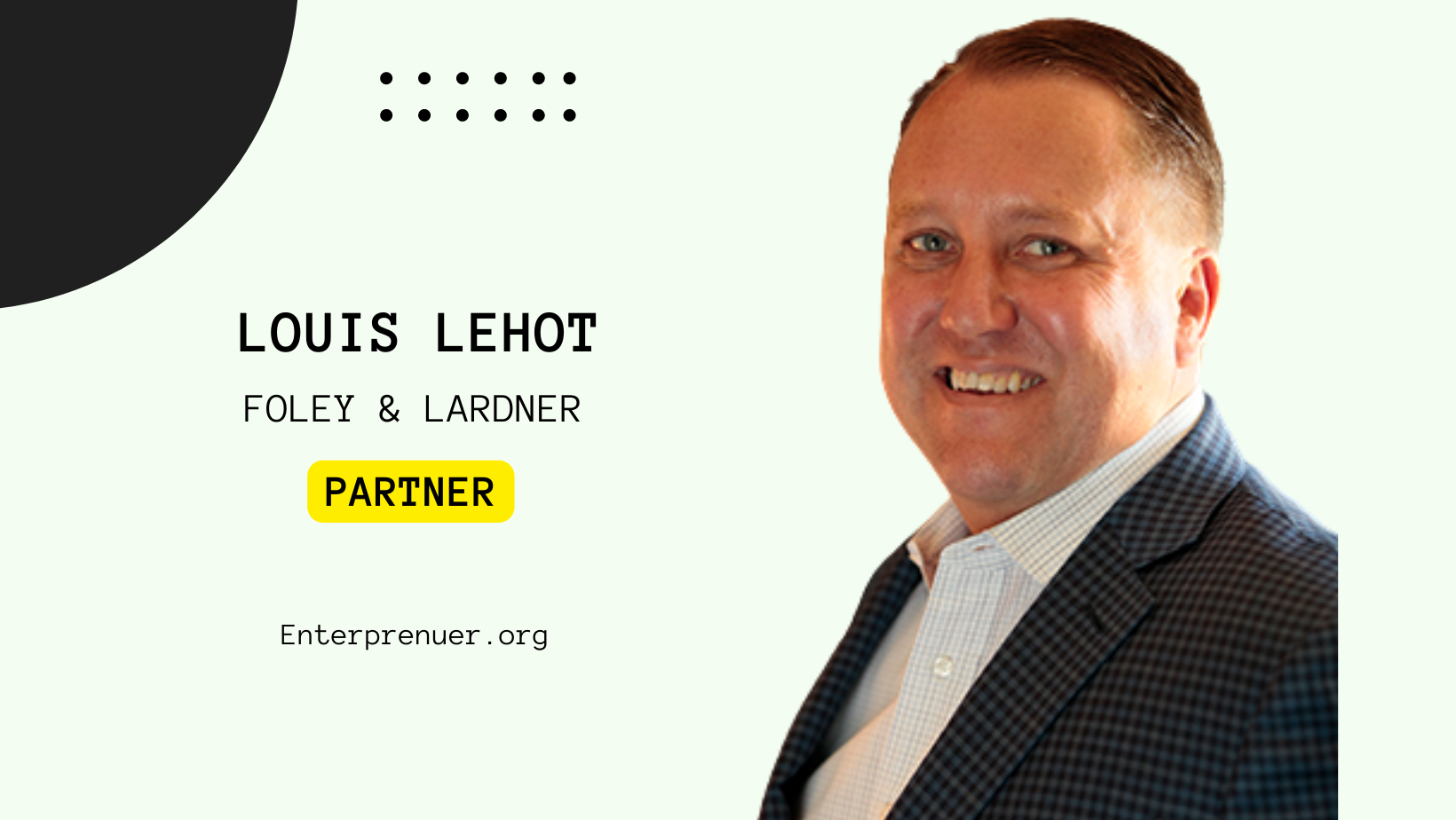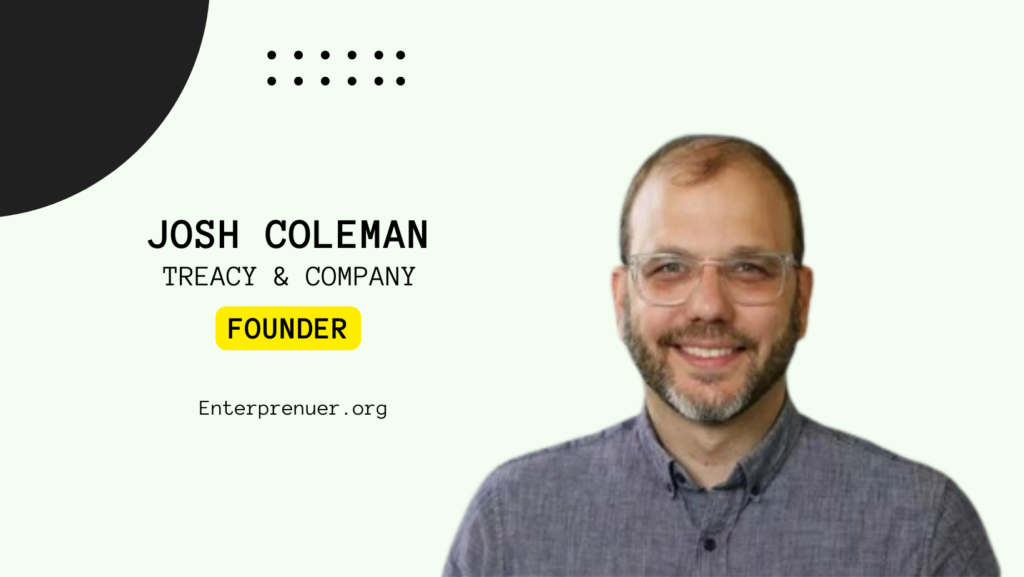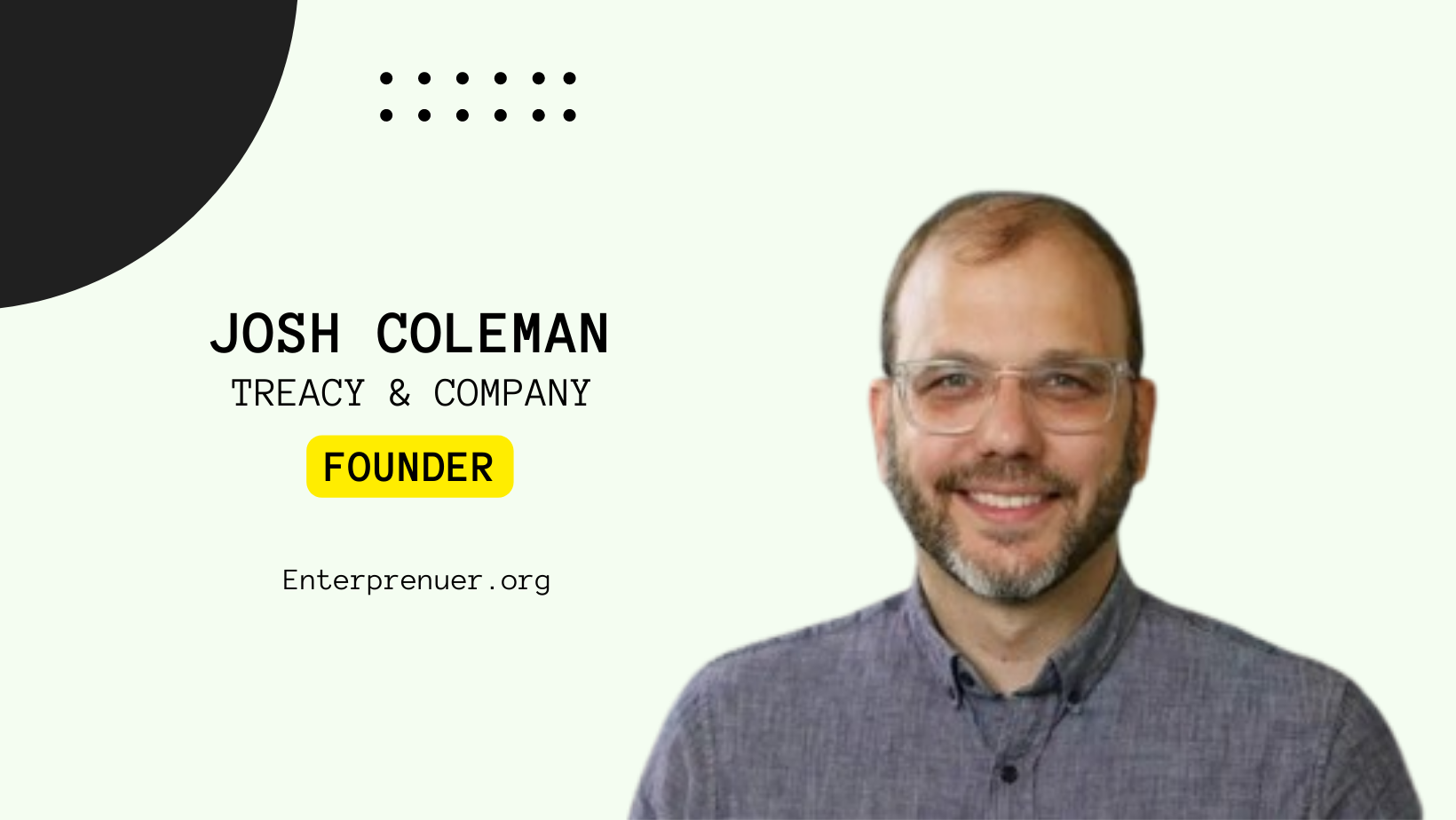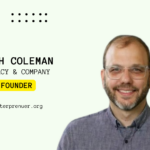Louis Lot, a partner and business attorney with Foley & Lardner LLP, is based in Silicon Valley, San Francisco, and Los Angeles.
Louis’ practice focuses on the advice of entrepreneurs, their management teams, investors, and financial advisors at every stage of growth, from small-scale to large.
He is a member of the Private Equity & Venture Capital, M&A and Transactions Practices and Technology, Health Care, and Energy Industry Teams.
Louis enjoys helping his clients reach hyper-growth and go public.
He also enjoys assisting them in obtaining optimal liquidity events.
Before joining Foley, Louis founded L2 Counsel, a boutique Silicon Valley law firm.
You joined Foley & Lardner recently. How did this happen?
Foley & Lardner LLP was founded by my colleagues from L2 Counsel, a boutique law firm.
Foley & Lardner LLP joined Foley & Lardner LLP to serve clients in an AmLaw Global 50 company supporting entrepreneurs.
Our clients now have access to many like-minded lawyers backed by world-class technical staff and a top-notch professional staff and us.
Foley & Lardner will also have the chance to increase its presence on West Coast.
Collaboration with others is what makes me my best. We are both excited about what lies ahead.
Foley joining is a natural extension of the path I started when L2 Counsel was launched.
My passion for helping investors and disruptive entrepreneurs at all stages of growth to achieve new heights led me to the idea of launching a new law practice in innovation law.
These include entrepreneurs from Stanford University’s labs and their venture capitalists and private equity investors.
They also include CEOs of large publicly traded “big tech” and life-science businesses.
As a Silicon Valley lawyer, my day consists of helping entrepreneurs from ideation to formation, to minimum viable product (MVP), commercial shipment, financing, scaling, scaling to global, and finally exit.
Our best relationships are those that are built on mutual trust and confidence.
We have learned many times over and continue to do this every day.
My colleagues and I are well-known for building relationships with our industry’s best entrepreneurs, investors, buyers, and sellers.
Our clients benefit from these connections both within and outside our legal areas.
They can create a framework that allows them to innovate and monetize.
Relationships are an essential thing in life. It is not the same thing to know who people are as being able to make qualified introductions.
Real innovation comes from our ability to collaborate and connect with leaders in different industries. We excel at what we do best: the value we provide to our clients, both established and growing companies.
My idea was born out of the conviction that an intense focus on the innovation economy would lead to a better world.
How do you stay productive?
I’m always looking for new ways to increase my productivity and effectiveness, but I firmly believe it is about establishing and maintaining good habits.
I am present means listening, empathizing, strategizing, and giving guidance and advice.
Making clients feel safe and secure is the best thing I can do for them.
You can never make people forget how you make them feel.
My success and productivity record are based on my ability to stay focused on one task, one relationship, and one goal at a time.
My advice has the power to help my clients succeed in all they do.
Even with all the distractions and commitments that may surround me, I can only focus on my client’s conversation when we meet or speak by phone.
My ability to remain true to myself and my values reduces the chance of missing an opportunity or overlooking a key detail.
This discipline increases my productivity over time.
Productivity is about being present and entirely in the now.
I know that this requires me to be focused and disciplined.
This requires good habits that I’ve learned over time.
What you eat and how you sleep are your choices.
Your thoughts and ideas shape your reality. It’s always a good time to discover new “hacks” that will help you create better habits and increase productivity.
It isn’t easy to get to bed regularly and still get a good night’s sleep.
But, it is essential to strive for that balance consciously.
My morning routine includes guided meditation, gratitude, and forgiveness.
I use apps such as Omvana by Mindvalley to access them on my phone.
I embrace technology-based solutions and love discovering new ways to foster growth.
My morning practice lasts about fifteen minutes.
Positive thoughts, gratitude, counting blessings, and forgiveness help me stay grounded.
Although it has been difficult to incorporate physical exercise into my daily life, it is essential for mental and physical health.
Peloton time is ideal for the early morning.
I make green smoothies with my daughter on weekends to ensure healthy nutrition each day.
My favorite ingredients include spinach, rainbow chard, celery, and avocado.
Fresh foods are my priority. I eat lots of vegetables and limit sugar and processed foods.
This is a challenge for wine lovers. To stay hydrated, I drink a lot of espresso in the morning.
It’s then time to rush to get Ella and Adam to school and me to the office.
Although remote work will probably continue partially, I still value face-to-face communication with my clients and teammates.
Meetings with clients and colleagues are held between 9 and 11 a.m. and 2 and 5 p.m., whenever possible.
My priority is to leave my office at least once a week to attend events, host dinners, and meet with people I admire.
All the while, I am adhering strictly to safety protocols. Clients should see me.
They value my commitment to communication and staying up-to-date on critical issues.
When faced with anxiety and negative thoughts, I ask for help from the universe.
This gratitude helps me to overcome the inevitable difficulties I face.
Life is short. Every day is rent. Success is to be rented.
Being present and grateful are the keys to productivity.
How do you bring ideas to life?
In a brilliant book with the same title, Peter Block wrote that “The answer is yes.” it would help if you first distilled your idea down to its essential parts.
Then, work together to build on that information.
Keep your eyes on the prize and persevere through any roadblocks.
What’s your favorite trend?
As we emerge from the depths of the pandemic, I am more confident than ever that academia, private industry, and the government will work together to create a new revolution for regenerative medicine.
With a renewed focus on public/private partnerships, I believe that digital transformation will accelerate the adaptation and operation of business models for remote workers.
Zoom and Webex have been well-known names in remote collaboration and document sharing, but established blue-chip businesses are also changing.
Verizon spent $500 million last April to acquire BlueJean Networks.
BlueJean is a rival venture-backed video and collaboration tool that offers unique features.
Combining BlueJean and Verizon’s extensive installed customer base strengthens Verizon’s position as a formidable competitor.
These three companies are likely to enter a technological arms race to create a new document and remote collaboration features.
Investors may also be motivated by artificial intelligence and machine learning, workflow automatization, dev-ops, and blockchain demand.
Venture capital funding for telemedicine businesses increased by $788 million in 2020.
According to Mercom Capital Group, this funding was more than three times that telemedicine companies raised during the first quarter of 2019.
Privacy will be a significant concern as technology and health solutions become more advanced.
Lawyers will be required to develop tools that balance civil liberties and the needs of society.
My mission is to work with entrepreneurs and create business models that combine these missions.
What habits make you productive?
My grandfather, a Swedish immigrant from Sweden to this country just before the 1906 San Francisco earthquake, taught me positive thinking and how to add value to all relationships.
My grandfather survived the earthquake and the subsequent fire at an early age.
He also navigated two world wars, a depression, and other difficult times.
Bob Proctor said, “Thoughts become things.” Positive thoughts translate into positive outcomes.
Positive reviews are crucial to achieving a positive outcome.
Proctor said, “[i]f your mind sees it, you will have it in your hands.”
Amid this year’s global pandemic, I helped clients apply for SBA assistance to pay their payroll and other time-sensitive payments.
For those whose transactions were delayed or canceled by their counterparties, I offer support and help to find new ways of moving forward.
Other times, I assist professionals in navigating their exit from their firm.
Every week, I spend hours making targeted and thoughtful introductions to entrepreneurs, investors, professionals, and other potential opportunities.
Instead of asking clients for money to cover these critical tasks, often done in their most difficult hours and with the least resources available, I don’t seek compensation or financial remuneration. Sometimes, “[w]e don’t make a living by what you get,” but by what we give (Sir Winston Churchill).
Apart from finding ways to add value to entrepreneurs, my daily activities include following their businesses, industries, competitors, and what current events might impact their business.
Trust and loyalty are built by my willingness to go the extra mile for clients.
My clients and practice benefit from green sprouts when I often plant seeds and water them.
Although there is no transactional compensation for these contributions, entrepreneurs are infinitely more productive when focusing on giving rather than getting.
What’s your advice for the Noob?
Growing up in Oakland, California, I worried about whether I would ever make a difference.
I believed that if I worked harder and focused solely on the next step, I would succeed.
It was a blessing to have the support of a strong group, which included teachers, counselors and coaches, clergy members, and my grandparents, aunts, uncles, and grandparents.
They believed in me and encouraged me to be my best, so I was able to help others.
The most important rules I followed were to do good for others and invest in myself and those around me.
I was influenced by the rich heritage of immigrant values and a positive outlook and stuck to the principles my grandparents and parents taught me.
To be honest with me and follow my heart, all I want to achieve will come true.
My younger self would tell me not to worry too much about the future as long as I was true to myself.
I would have praised myself more and done more self-love exercises and positive self-talk (maybe affirmations).
I would have felt more confident and would have been able to start my journey to helping people help the planet sooner.
It takes a lot to be self-aware and know what you need at any given moment.
What is one thing we can all agree on?
Henry Ford invented the assembly line made it possible for industrial organizations to grow based on the geographic concentration of supply chains within the United States.
Globalization has made it imperative to source the best products possible wherever they are available.
Delivery to clients is done at the most cost-effective and convenient locations for the client, with delivery on time.
The traditional integrated assembly line and supply system replaced disassembly or open-sourced supply chains.
This allows countries to be arranged according to their competitive and comparative advantages.
Although traditional borders still exist, global trade and the internet transcend them.
This trend will continue to accelerate in 2021, despite talk of trade wars and tariffs.
When you examine America’s cultural diversity and other developed market economies, it is clear that borders are more grounded in tradition than practicality.
My professional and personal lives are one in which I try to act as if there was no border.
This is why 24 months before the pandemic, I traveled to 13 countries and four continents to serve my clients.
What is one thing that you recommend to everyone as a successful entrepreneur lawyer?
Entrepreneurs have the number one job to incite disruption within an industry.
This involves evangelizing potential customers, engineers, product creators, and employees.
Guy Kawasaki, ex-CMO of Apple, wrote The Art of Enchantment.
It is a well-known book that starts with a smile and ends with laughter.
It is full of positive energy. Everybody I meet, I try to spread smiles and positive energy.
A few years back, I met with a young entrepreneur to seek my advice on a mission-critical task that is integral to executing transactions.
I listened carefully to his pitch. This meeting is still fresh in my mind.
He was cheerful, bullish, and reassuring. Although his startup firm didn’t have the track record of other firms, I wanted to support him and give him credit with my account.
I did not expect anything in return. This entrepreneur was my first client when I set out on my own to build my law practice.
Our mutually positive energy and trust from a random meeting led to a lasting lifetime friendship.
He is now a key client, connector, and referral source.
Positive energy, optimism, and creativity can have a ripple effect.
It will return to you exponentially more significantly if you radiate it from your heart. This is karma to me.
Which strategy has been most successful in growing your practice?
My success as a corporate, venture capital, and securities lawyer depends on my expertise and experience, the support of a great team, and the trust shown by the Silicon Valley business community.
This requires me to get to know many people and build trusting relationships with them while still being “top of mind” when they need outside Counsel.
I’m also a father, husband, and human being. There are only 24 hours each day and seven days each week.
Every person in history has lived the same 24 hour day.
Abraham Lincoln stated that the beauty of the future was that it happens one day at a time.
To be efficient, I must be highly efficient within 24 hours.
My family, children, and wife are my most important priorities.
Because of this, I try to make time for them every day.
I also make it a point to spend more time with clients, referral sources, and other essential members of my community.
I find time to network and speak with new friends.
I understand the importance of strengthening my existing friendships.
This has meant that I have had to reduce people’s time on shopping, watching TV, or surfing the internet.
I can now be more productive with the time I have regained.
I was suffering from burnout and exhaustion several years ago.
To help me focus better, I hired a consultant. After carefully analyzing each client, transaction, relationship, source, enjoyment, and revenue generated, I was able to identify what was effective and what was not.
The art and practice of being kind to others resulted in a volume effect.
More activity equals more business. In contrast, less activity means less business.
After that realization, I now try to get out of the office and meet people.
Each face-to-face meeting and catch-up call (or Zoom) should result in three follow-up items.
It encourages friends to do the same and to follow up with you.
How do you overcome Failure?
I focused solely on two clients and one senior partner in my early years.
My prospects suffered tremendously after the “great recession” hit in late 2008 and continued into 2009.
My practice could not sustain itself because of the short work generated by one of its senior partners and two clients.
That led me to lose my chance of becoming a partner in that law firm.
John Wooden’s advice that failure is not fatal but failure to change maybe, I began to search for a platform that would allow me to provide the services I needed to my clients.
I wanted to be able to offer my services at a cost that was reasonable in this economic environment.
To adapt to market conditions, I had to do this on an even larger scale than before.
It took me months to meet potential clients and firms, hone my pitch, and learn from every feedback piece.
Even in the worst economic recession, the response I received was terrific.
My practice increased due to new clients signing up in large numbers.
Brandon Mull said, “Smart people learn from their mistakes and wise ones from the mistakes made by others.”
I tried to understand why others were failing. I concluded that the failure to adapt to market conditions was the reason.
It is essential to listen to clients and offer a solution to their pain points.
Can you share a business idea?
I realized that my core business was meeting and keeping in touch with my clients so that they could remember me when they needed outside Counsel.
I enjoy traveling and visiting family, friends, clients, and colleagues.
My idea is to create a method of teleporting that recreates the experience of in-person meetings.
Imagine our avatars being transported to a room and able to order their avatars to shake hands.
In return, we would feel the tactile pressure of the other person shaking our hands.
Remote experiences will be more in demand in the coming months and years.
Artificial intelligence may make the above possible.
What’s your recent best buy?
Coaching is a great way to improve your personal growth, either for general enrichment or to fix a particular problem.
When I see a gap in my understanding, perception, or health, I seek out coaches from all walks of the profession.
I ENGAGE THE BEST when I need help with a topic or task.
Recently, I was faced with a problem in communicating my value proposition and addressing a specific client’s need.
John Livesay, a highly-respected sales coach, specializing in selling through better storytelling, was immediately connected to me.
John helped me craft my response to the customer through an authentic, relevant, and personal story relatable to the client and me.
John’s advice was spot on and provided the best value for my money.
Although he didn’t ask for compensation, I demanded that he pay me in gratitude for our mutual friend.
I am always looking for ways to improve myself and my personal life.
I am also very deliberate about building on my strengths and filling in the gaps to be a better lawyer.
What are your favorite Softwares or Apps?
As a technology, life science, real estate, clean energy, and innovation lawyer, I am constantly trying to find new and better ways to use technology to achieve more, do more, and be more competent.
I believe that lawyers and law firms will thrive in the post-COVID19 recession.
They will integrate technology to transform the way services are delivered.
To ensure that my fees reflect my value, I constantly update my vendor list to provide the best technology-enabled legal services.
My clients see me more as a value-added partner than a tax when they can save money using a technology-enabled vendor.
I also keep my digital footprint updated to communicate on various issues and developments.
Videoblogs and podcasts are my favorite tools for sharing information on legal, business, and leadership topics.
My friends say that I sometimes look like a millennial due to my love of technology.
But I know that I am doing something right. Many of my most disruptive clients are millennials.
Like many of my family and friends, I used Zoom extensively to communicate during the shelter in place period. I suspect its continued use after COVID.
My clients depend on me as a friend and lawyer to provide sensitive information.
Zoom has enabled me to do this with them, which is invaluable for my business.
Grammarly was also integrated into my writing to make it more productive.
I can avoid making mistakes that could otherwise be missed when my time is limited.
Which book would you recommend?
Although I enjoy reading fiction and nonfiction, I have one constant: The Pilgrimage by Paolo Coelho.
This Brazilian writer is a favorite of mine. As he walks from France to Santiago de Compostela, searching for his “sword,” I see the author’s thoughts.
We discover that the extraordinary can always be found in ordinary people’s every day and short lives.
The book is a mix of adventure and self-discovery.
It is a blend of enchantment as well as insight. This is my favorite passage:
“The busiest people I know have enough time to do everything. People who do nothing are never productive and don’t pay attention to what little work they have to do.
They complain that their day is too short. They are afraid of losing the good fight.
Leaders who are the first leaders of their people are the best.
Although I know that I have sole control of my destiny, I learned long ago that I could help more people and bring about positive change by investing in myself.
Warren Buffet reminds us that no one can take what you have invested in yourself.
What’s your favorite quote?
Coelho wrote another favorite quote from The Pilgrimage: “We must not stop dreaming.”
As a meal provides nourishment for the body, dreams provide nourishment for our souls.
We will often see our dreams crushed, and our desires denied, but we must keep dreaming.
TL;DR by Louis Lehot
Louis Lehot is a Foley & Lardner partner.
He represents innovative, high-growth companies and helps them in all stages of their development, from the garage to the global.
If we focus on a technology-driven economy characterized by cleaner energy, smarter cities, and regenerative medicine, the future will be brighter.
Flexibility is critical, from learning to be more social-media-friendly to having effective, virtual work calls.
Trust and loyalty are vital to building solid personal and professional relationships.
It is essential to make an effort to keep relationships intact and invest time in building new relationships.
Invest in appreciation. You must convey the preference for your help, even if they don’t ask for it.



